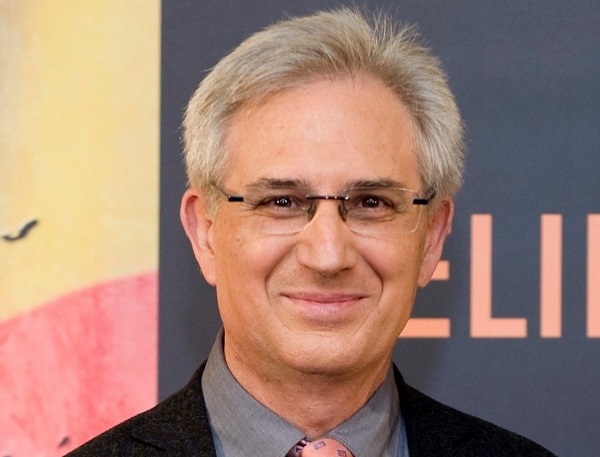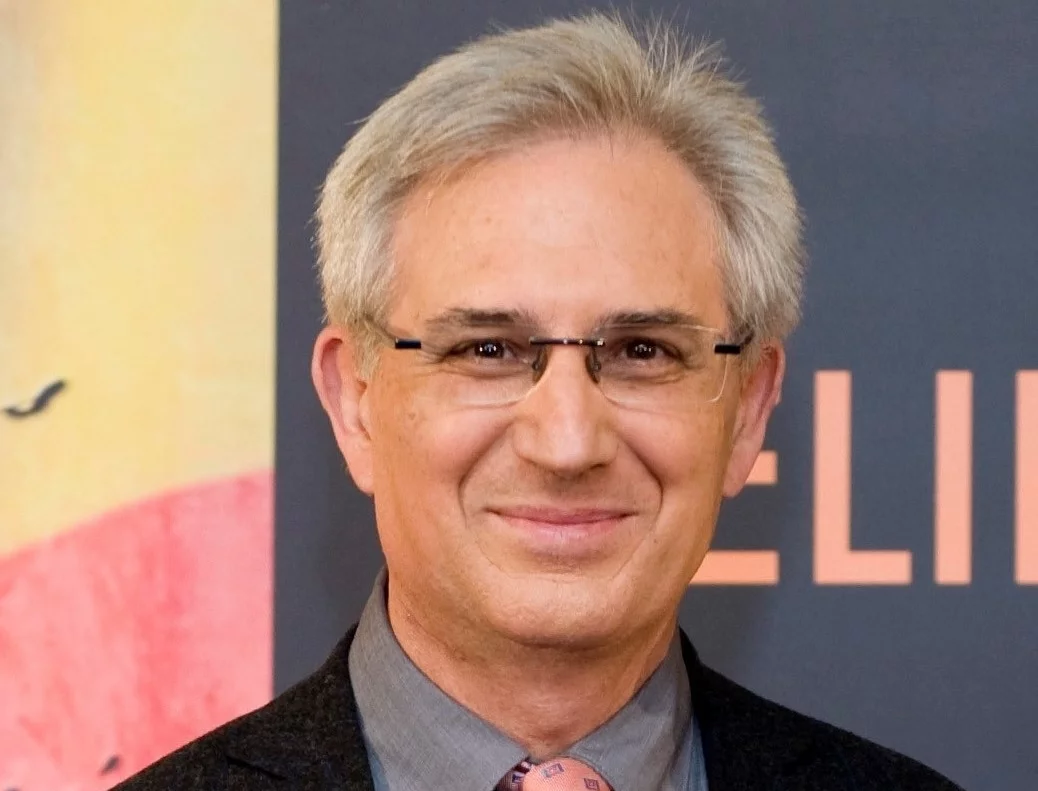- LegislationPolitics
- 30 de April de 2024
- No Comment
- 14 minutes read
F. de Vicente: “The LOMLOE is the law that teachers are most opposed to”

F. de Vicente: “The LOMLOE is the law that teachers are most opposed to”
Interview published by Fundación Episteme, May 9, 2022


Eva Serra
De la ley al aula. Crónica de la educación en España 1977-2022 (From the Law to the Classroom: A Chronicle of Education in Spain 1977-2022) is the narration of a historical journey through the educational laws passed from the Transition to the present day. Its author, Felipe de Vicente, has experienced firsthand many of the negotiations and reforms within this educational mechanism, which he believes has turned into a real absurdity or even in a complete nonsense. In this interview, we examine some aspects of this book, which starts the series of publications from the Fundación Episteme.
Felipe José de Vicente Algueró is the Vice President of the Fundación Episteme and Full Advisor of the State Education Board for the group of renowned personalities. He holds a degree in Philosophy and a Ph.D. in History from the University of Barcelona. He has also been a lecturer in Economic History of Spain at the same university and a civil servant of the Secondary Education Professorship. He has taught for more than thirty years.
What would you highlight from the early educational organizations in Spain during the Transition?
We transitioned from a regime with a compulsory affiliation, a sindicato vertical (Spanish Trade Union Organization), to another one with freedom of association. This favoured the creation of various employers’ associations and trade unions, some specifically focused on secondary education, being the most significant one aspepc·sps, with the highest number of votes in Catalonia.
The LGE (General Education Law) brought about a significant revolution in the Spanish educational system. No previous law had caused such a noticeable change
The General Education Law of 1970 introduced significant changes. How do you think it influenced or determined the subsequent educational laws?
The LGE (General Education Law) brought about a significant revolution in the Spanish educational system. No previous law had caused such a noticeable change. It established compulsory education up to the age of sixteen. It raised the level of demand for teachers, who accessed Teacher Training Schools after completing the BUP[1] (at age 17), and not as it was done before, after completing the old Bachillerato Elemental (at age 15). Additionally, it introduced FP (Vocational Training), which did not exist until then, offering two levels: FP1 and FP2, which continue to exist today under the names of Intermediate and Higher Vocational Training programs.
What was the most challenging aspect of the negotiations in the 1970s?
I believe the most difficult part was Article 27 of the Constitution, the one we currently have, and which has been the only consensus since its establishment. At a specific moment, the Socialist Party walked away from the negotiation table, although they later rejoined. It was impossible to find a final draft. In the end, an agreement was reached in a face-to-face meeting between the two great negotiators: Alfonso Guerra from the PSOE and Fernando Abril Martorell from the UCD.
The most difficult part was Article 27 of the Constitution, the one we currently have, and which has been the only consensus since its establishment
Following the Moncloa Pacts, there was also a significant increase in the number of state schools.
After 1978, a budget line was created to significantly increase the number of state schools, some of which were initially located in temporary buildings. The first assignment I had in a high school was in an old mansion, then a building was created; it was quite common. Furthermore, it was favoured that certain private high schools could be affiliated with state high schools, funded with public resources, thereby expanding the state school system.
With the LODE (1985), school councils were introduced as major participatory bodies. In your book, you mentioned that parents experienced it as something distant.
The LODE introduced subsidised education and school councils. In exchange for public funding in private schools, it was required that all schools had a school council, although it was mainly intended to control subsidised education.

The school councils came hand in hand with José María Maravall and were inspired by the English model, where schools had a great deal of autonomy. Until Margaret Thatcher introduced the National Curriculum, each school could create its own curriculum. Parents were more involved as they wanted to know what their children were studying. In the Spanish model, everything is much more regulated, and the autonomy of the school council is limited.
The elections that are periodically called in the school councils involve the participation of students, teachers, administration and service staff, but families are less involved because they do not know the candidates. In the book, there is a graph showing the participation of parents attending, for example, parent-teacher meetings, but they see school councils distant. There are also parents’ associations, (the AMPAS), where families can participate actively in the educational field.
Spain also adopted the comprehensive school model from the Anglo-Saxon education system. However, in England, the move away from the grammar school system towards comprehensive school was ultimately seen as a failure. Why didn’t Spain backtrack?
The comprehensive model failed in the UK. Furthermore, it was poorly imitated here. In the Nordic countries, the high school education lasts more years and has a higher level than ours
The United Kingdom is a country accustomed to freedom since the end of Cromwell, having enjoyed it for several centuries. We have a centralist, Napoleonic educational model. When the English comprehensive school was created, not all grammar schools were lost; however, here all secondary schools, without exception, became comprehensive schools. The British public schools, which are private there, maintained, and continue to have, the model of the grammar schools, which was more demanding. And now it turns out that the grammar schools are the most requested. The comprehensive model failed in the UK. Furthermore, it was poorly imitated here. In the Nordic countries, the high school education, primarily designed for university studies, lasts more years and has a higher level than ours. Additionally, in the UK, after the equivalent of our ESO (Compulsory Secondary Education) stage, there is an external examination.
What do you think of the recent reforms affecting Spanish ‘Bachillerato’?
Our Bachillerato “works for everything,” both for going to university and for vocational training. This is particularly evident nowadays. A two-year program either needs to be highly specialised or it is not very useful. For instance, the British one is also two years long. But the students specialise in 3 or 4 subjects that are usually relevant to the degree subject they wish to follow at university. In Spain, it is the opposite. All the subjects are at a low level, intended to serve everyone equally and it offers only slightly more than what was studied in the ESO.
And, is it easier to achieve due to automatic promotion?
Without different pathways, there is no other option than to lower the standard significantly. This harms those students who do want to achieve a level of excellence. The great problem of the Spanish education system is to renounce excellence
One of the causes of repetition is the absence of academic pathways already in the ESO (compulsory secondary education). The pathway makes repetition difficult and, if it is not reached, another one of a different level is chosen. But here there is the mantra that this is “segregating” students. Without different pathways, there is no other option than to lower the standard significantly. This harms those students who do want to achieve a level of excellence. The great problem of the Spanish education system is to renounce excellence.
How do you explain the paradox of an education system becoming increasingly intrusive in the quality of teaching and learning, yet evasive when it has to analyse the data obtained from external evaluations or exams?
The Spanish state has refused to standardise its education system. Standardisation is the most progressive method possible: all students should be required to have the same standards. However, in our system, we find that it is easier to obtain a certificate in some schools than in others. In the end, all students get the same certificate. It is the same for students who have made an effort than for those who have not. This does create inequality. As a result, we have one of the most expensive education systems in Europe but with poor outcomes. We are wasting taxpayers’ money.
We have one of the most expensive education systems in Europe but with poor outcomes. We are wasting taxpayers’ money
How is it in other countries?
In France, the baccalauréat degree is accredited with a grade and external exams, and all high schools must demand the same standards. As a result, the French baccalauréat degree is very valuable. Germany, the United Kingdom, and Italy have similar systems. In these countries, the state guarantees a minimum standard for everyone, and those who do not reach it do not receive the degree. Even the Spanish monarchs have preferred their daughter to study her baccalaureate at one of the most demanding centres in the world. I visited this school years ago and saw how it worked; they have a high-level program.
To make matters worse, Spain has one of the highest rates of school failure.
Failure at school is understood here as early school drop-out, repetition or failure. But failure also comes when we see that the academic results of our students in PISA are below the OECD average. That is school failure. A system that has settled in mediocrity and renounces excellence is a failed system.
A system that has settled in mediocrity and renounces excellence is a failed system
A growing number of teachers are beginning to recognise this. We are seeing it in the teacher strikes in Catalonia.
I’ve witnessed many strikes, but I had never seen one like this, where one of the most important demands was “no to the new curriculum.” Teachers see it as unworkable and nonsensical. This demonstrates the existing gap between theorists who have never set foot in a classroom and now design curricula, and the teachers who must implement them. In Portugal, negotiations have taken place involving associations of teachers but not here. When you see platforms like the one in Valencia “No to the domains”, you realise that the LOMLOE is the law that is provoking the most rejection among teachers. The 1970 LGE created annexed primary schools where experiments could be carried out. If they worked, they would be implemented, but if they did not, they would remain just like mere experiments. I would very much like pedagogues to have something similar and to be able to experiment before pontificating.
But the laws support them.
Reflecting those experiments in an organic law is unprecedented. For an organic law, which is the most important thing after the Constitution, to come and tell us that we have to do projects is a degree of interference in the work of teachers that is typical of a totalitarian regime. How is it possible for an organic law to tell us how to implement the domains, the projects? It is not its task, it is delirious.
For an organic law, which is the most important thing after the Constitution, to come and tell us that we have to do projects is a degree of interference in the work of teachers that is typical of a totalitarian regime
Which law, among the ones you review in your book, do you consider to be the most sensible in terms of education, and which one is the worst?
Regarding the LOGSE, the LOCE had some positive aspects that were partially maintained in the LOE. However, the LOMLOE is not a return to the LOE; it is a return to the LOGSE. Certainly, the LOMLOE is the worst.
From the LOGSE to the LOMLOE, how would you define the educational history of Spain since the arrival of democracy?
Spain stands out for its tendency to introduce a new education law every five years, which is unprecedented. Education systems and reforms require a certain legal stability and security. Here, each government changes the law. Why? Surely, excessively partisan aspects have been introduced. If we were to make more reduced basic laws, like the Moyano Law that was in force for many years, they could then be updated via Decree, but not through an Organic Law that is as intrusive as the current one in the teaching profession. Educational laws must be very consensual and count on basic laws.
___
[1] BUP is the acronym for Bachillerato Unificado Polivalente, an educational system that was implemented in Spain in 1975 and lasted until 1990. It was the level of secondary education after EGB (Basic General Education) and before university or vocational training.
Source: educational EVIDENCE
Rights: Creative Commons

